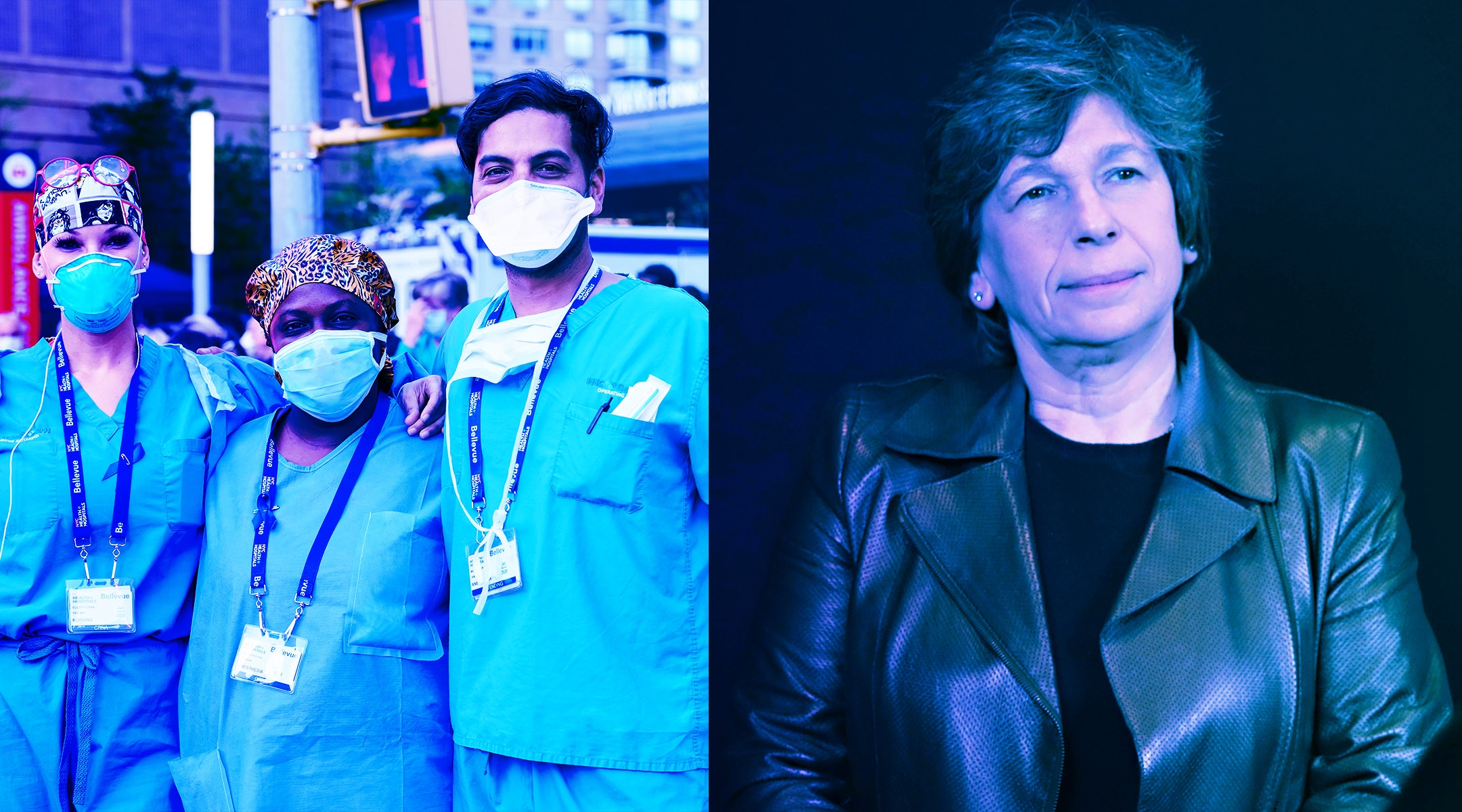NEW YORK (JTA) — These past few months have surely tested our understanding of the Talmudic saying to save one life is to save the world. We must continue to live each day by caring for the people who have carried us through this crisis and caring for each other.
So many people the world over have demonstrated this care in deep and meaningful ways in recent weeks by cooking for frontline workers, donating protective equipment or giving tzedakah, charity, to the many organizations trying to mitigate the effects of the coronavirus crisis.
But individual acts cannot repair and reshape our world in the ways that the pandemic has made clear are needed. We must harness our collective power to make sure we emerge from this crisis stronger, more just and more able to weather the next emergency.
As an engaged Jew, I am inspired by the values that have underpinned our people for millennia. And as the president of the American Federation of Teachers, a labor union representing more than 1.5 million educators and others, I have seen what is possible when we work together to change realities that might have seemed immutable. Last year, AFT members in Chicago and Los Angeles demanded and won raises, changes in working conditions and improvements for students that city leaders had said would be impossible. This required short-term interruptions to routines in the form of teacher strikes.
Now we are facing greater disruption and a situation that could easily feel doubly impossible. This pandemic has exposed so many harsh inequities of our society: Before this, nearly 40% of Americans couldn’t put together $400 in an emergency. The lines at food pantries and applications for emergency benefits have made visible the dire straits of many hard-working Americans and the absence of a safety net to catch them in the case of an emergency. What’s more, the reality is that until a vaccine is discovered and widely distributed, and we fully implement testing, tracing and other key public health measures, our society – including our public schools, places of worship and the economy – will continue to operate in a fundamentally different way.
But we don’t need to feel defeated. Instead we have a chance to use this moment to change reality for American workers, and thus for all of our futures.
We have a new appreciation of the frontline workers, and can see the many ways that our society is not structured to support them. Going forward, Congress must act to protect these essential heroes — among them nurses, food service workers, teachers, postal workers, child and home care workers, and other public service workers who are risking their lives — both from the pandemic and the caprices of everyday life.
We also now have a visceral understanding of something many of us have long believed: Inequality and poverty must be eradicated as preexisting conditions in the richest nation on earth. We can now reimagine a world that values all people’s ability to access basic care, goods and services. Support for the public good, the public sector, a commitment to public services that ensure health care, education and welfare for everyone — especially the most vulnerable — should lead us on our journey.
And we also have new insights about the role that schools play in building a healthy society. Not only do they help children learn, they also facilitate parents’ work, provide essential services including food and therapies for children who need them, and create space for children just to enjoy themselves in the company of friends. States and districts may be tempted to cut budgets, but now is the time to commit the resources — emotional, intellectual, creative and financial — to fund our schools so that when they resume, they can educate the next generation for a truly different world.
As a Jewish community and as a labor movement, we must be at the forefront of fighting for a better planet for all. Everything we do must reflect our values, particularly those that are inherently central to our Jewish tenets of justice and equality. We are the people of the book. Let’s not forfeit our children’s future, let’s fight for it. No more agreeing to the lowest common denominator — it’s time to shout our progressive values and fight to repair the world from which we are emerging.
This piece is a part of our series of Visions for the Post-Pandemic Jewish Future — click here to read the other stories in this series. Use #JewishFuture to share your own ideas on social media. If you’d like to submit an essay for consideration, email opinion@jta.org with “Visions Project Submission” in the subject line.
JTA has documented Jewish history in real-time for over a century. Keep our journalism strong by joining us in supporting independent, award-winning reporting.







